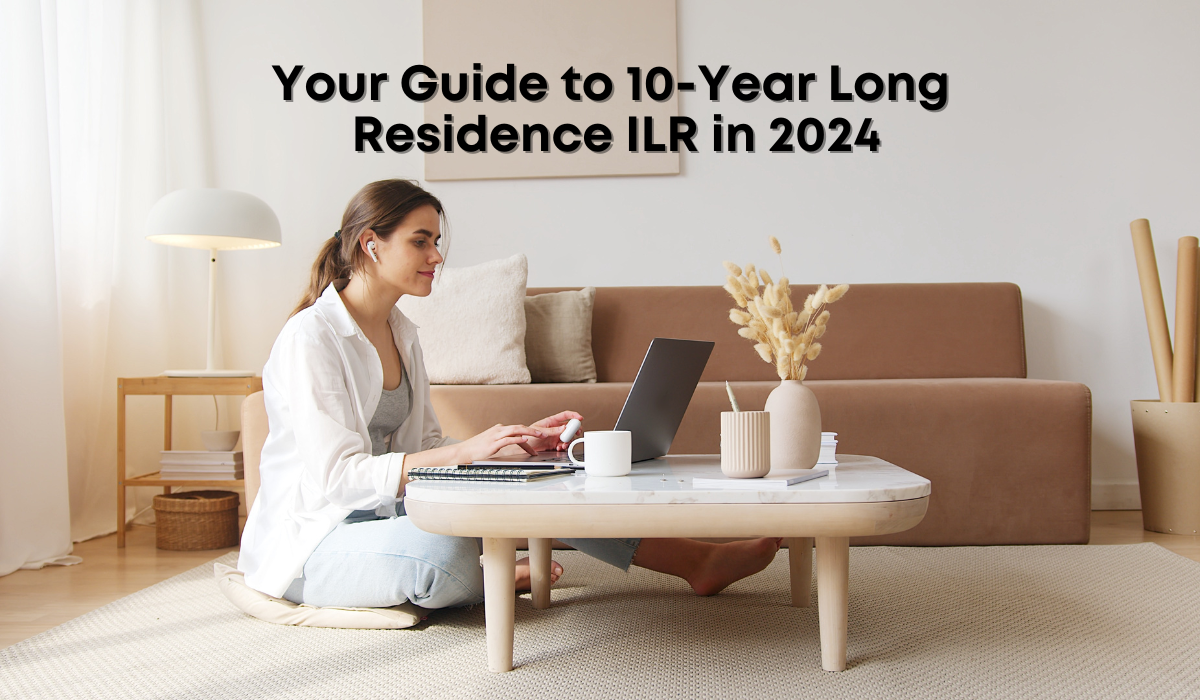For many migrants, the 10-year long residence route to Indefinite Leave to Remain (ILR) represents the culmination of years of dedication, compliance with immigration laws, and commitment to building a life in the United Kingdom. As we look ahead to 2024, significant updates to the rules governing this pathway underscore its importance as a secure route to settlement. Here, we explore the long residence ILR in detail, reflecting on its requirements, benefits, and complexities.
What is Long Residence?
Long residence is a provision under UK immigration law that allows individuals who have resided in the UK continuously and lawfully for at least 10 years to apply for ILR. This route is unique in its flexibility, accommodating migrants who have held various visa categories during their time in the UK.
Unlike other ILR pathways, which often require applicants to hold a specific visa for a fixed period (e.g., 2, 3, or 5 years), the long residence route permits individuals to combine time spent on different visas, provided their stay has been lawful and continuous. This makes it particularly appealing for those who might not qualify for ILR under other visa categories.
Eligibility Requirements for Long Residence ILR in 2024
To qualify for ILR under the 10-year long residence rule, applicants must meet the following criteria:
- Continuous and Lawful Residence:
Applicants must have lived in the UK continuously for 10 years under valid immigration permissions. Crucially, this period must not include:- Time spent as a visitor or on a short-term study visa.
- Time spent on immigration bail or overstaying a visa.
- Periods in Ireland, the Isle of Man, or Channel Islands.
- Absence Restrictions:
New absence rules coming into effect on 11 April 2024 introduce stricter requirements:- From this date, applicants must not have been outside the UK for more than 180 days in any 12-month period.
- Single absences before 11 April 2024 must not exceed 184 days.
- For periods before 11 April 2024, the total absences must not exceed 548 days.
- English Language Proficiency:
Applicants must meet the English language requirement by:- Passing a CEFR test at B1 level or higher.
- Possessing a degree taught in English.
- Being a national of an exempt country.
- Knowledge of Life in the UK:
Passing the Life in the UK test is mandatory. - Suitability Requirements:
Applicants must not have:- Criminal convictions or adverse immigration history.
- Breached their visa conditions.
- Posed a threat to public security.
Continuous Residence: A Closer Look
The essence of the long residence rule lies in continuous and lawful residence. The Home Office scrutinizes applicants’ immigration and travel history to ensure no gaps or breaches exist. Common pitfalls include:
- Overstaying visas (even for a single day).
- Spending extended periods outside the UK.
For those uncertain about their immigration history, submitting a Subject Access Request (SAR) to the Home Office can help retrieve records of visas, absences, and entry clearance applications.
Documents Required for Long Residence ILR
To support an application, robust documentation is essential. Applicants should provide:
- A current passport and biometric residence permit.
- All previous passports held during their time in the UK.
- Evidence of residence, such as:
- Travel tickets.
- Rental agreements or mortgage statements.
- Utility bills and bank statements.
- Employment contracts or education certificates.
Documents in languages other than English or Welsh must be translated.
When to Apply?
Timing is critical. Applications can be submitted up to 28 days before the 10-year qualifying period is completed. Applying too early—even by a single day—can lead to refusal. It is also essential to ensure the current visa remains valid when applying.
Extensions: A Safety Net
In cases where applicants meet all eligibility criteria except for the English language or Life in the UK test, extensions of two years may be granted under Immigration Rules Paragraphs 276A1 and 276A2. This provision ensures applicants are not penalized unduly while they work towards meeting all requirements.
2024 Updates: What Has Changed?
The new absence rules effective from April 2024 mark a shift towards stricter compliance. While previous absences are assessed under the older, more lenient rules, absences after 11 April 2024 face the 180-day annual cap. For those approaching their 10-year qualifying period, these changes could significantly impact their eligibility.
Why Choose the Long Residence Route?
The flexibility of the long residence ILR makes it a vital option for those with complex immigration histories. For example:
- Individuals who have switched between multiple visa types.
- Migrants whose visas, such as the Intra-Company Transfer visa, do not lead to ILR under other routes.
This route ensures that lawful time spent in the UK, regardless of visa category, is not wasted.
Seeking Professional Guidance
Applying for ILR is a milestone in any migrant’s journey. However, the process is complex and fraught with potential pitfalls. As experienced immigration solicitors, we offer tailored support, including:
- Assessing eligibility and timing.
- Preparing and reviewing applications.
- Handling complex cases, such as those involving absences or past visa breaches.
- Liaising with the Home Office on your behalf.
Final Reflections
The 10-year long residence ILR route is more than just a legal pathway; it symbolizes stability, opportunity, and belonging for migrants who have made the UK their home. With the 2024 changes on the horizon, careful preparation and expert advice have never been more crucial. Whether you are embarking on this journey or nearing the finish line, ensuring every detail is correct will pave the way to a secure and permanent future in the UK.
Contact us today to discuss your case and begin your application for long residence ILR. Let us help you make this important transition with confidence.
Get in touch: For a comprehensive understanding of your options or queries on UK immigration matters, contact GigaLegal Solicitors at 02074067654 or click here to book a no-obligation consultation with an immigration expert.


